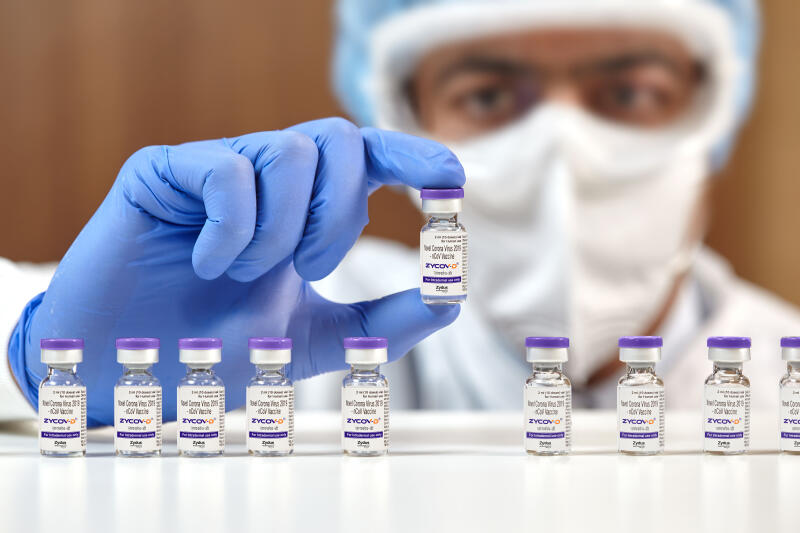Needle-free DNA vaccine may be key in India’s Covid-19 fight
Sign up now: Get insights on Asia's fast-moving developments

ZyCoV-D is a needle-free, three-dose vaccine that was approved last month for emergency use in adults and children aged above 12 years.
PHOTO: ZYDUS CADILA
BANGALORE - The world's first approved DNA vaccine could be a gamechanger for the Covid-19 fight, despite concerns that it has been approved by the Indian authorities ahead of any detailed clinical trial data being published and before the efficacy trial is complete.
ZyCoV-D, produced by homegrown Zydus Cadila, is a needle-free, three-dose vaccine that was approved last month for emergency use in adults and children aged above 12 years.
It is delivered through a device which propels a fine, high-pressure stream of fluid that punctures the surface of the skin.
The vaccine uses circular strands of DNA to prime the immune system against the coronavirus that causes Covid-19.
According to the Ahmedabad-based company, a needle-free injector is more accurate and requires little training. Using a high-pressure stream, the device will "insert" the vaccine under the skin, unlike injections that penetrate deep in muscle tissue.
Dr Shahid Jameel, a virologist at Ashoka University, explained that the area under the skin is rich in immune cells that can "catch the DNA and process it more efficiently than in the muscle."
The painless method also reduces anxiety and could encourage more people, especially children, to get the jab.
The vaccine could be significant for pandemic response in India, where schools have been closed since March 2020 to control the spread of Covid-19.
Interim results from phase three clinical trials involving over 28,000 volunteers showed ZyCoV-D to be 67 per cent effective in protecting symptomatic patients from severe effects of Covid-19.
The efficacy is lower than that of many other Covid-19 vaccines. For example, data shows Pfizer-BioNTech and Moderna vaccines range from 64 per cent to 95 per cent.
But some experts find ZyCoV-D's efficacy rate acceptable. Since Covid-19 is deemed as a severe disease, the World Health Organisation maintains that a vaccine that is only 50 per cent effective is still worth using.
Still, healthcare watchdog All India Drug Action Network (AIDAN) said that there was no information in the public domain "to indicate how well the vaccine would work in adolescents because there were no Covid infections in the age group when the interim analysis was conducted."
AIDAN coordinator Siddhartha Das said there were "major lapses" in the trials. For instance, there were "zero female participants" in the phase one trial that tests safety, the lone phase one trial site was not independent but run by Zydus, and the third phase trial began in January even before the phase two data was analysed.
"ZyCov-D is a potentially strong vaccine candidate but the lack of data transparency, gaps in published data, and conflict of interest at trial sites are serious concerns," said Mr Das.
Zydus Cadila did not respond to queries from The Straits Times.
But its managing director Sharvil Patel earlier told the media that trials were conducted for 2,800 volunteers including 1,400 adolescents aged 12-18 years and no severe side effects were seen.
"The vaccine development journey starts by first trying it in adults, then adolescents and then children," he said, adding that they will begin testing the vaccines on younger children aged between 3 and 12 years soon.
Experts say that DNA and mRNA vaccines are best suited to situations like the Covid-19 pandemic, when billions of people need vaccines quickly.
Manufacturing conventional vaccines requires large quantities of the weakened virus and viral protein, and is more time-consuming than simply replicating the genetic information of the virus.
DNA vaccines like ZyCov-D are both easier to manufacture and more stable for warm climates than mRNA vaccines that require storage at very low temperatures, said Dr Jameel.
If successful, DNA vaccines would be "the future of vaccinology", he added.
Zydus Cadila aims to produce 10 million doses of ZyCoV-D by October and 40 to 50 million doses by January.
India targets to vaccinate all 1.3 billion of the population by the end of the year.



